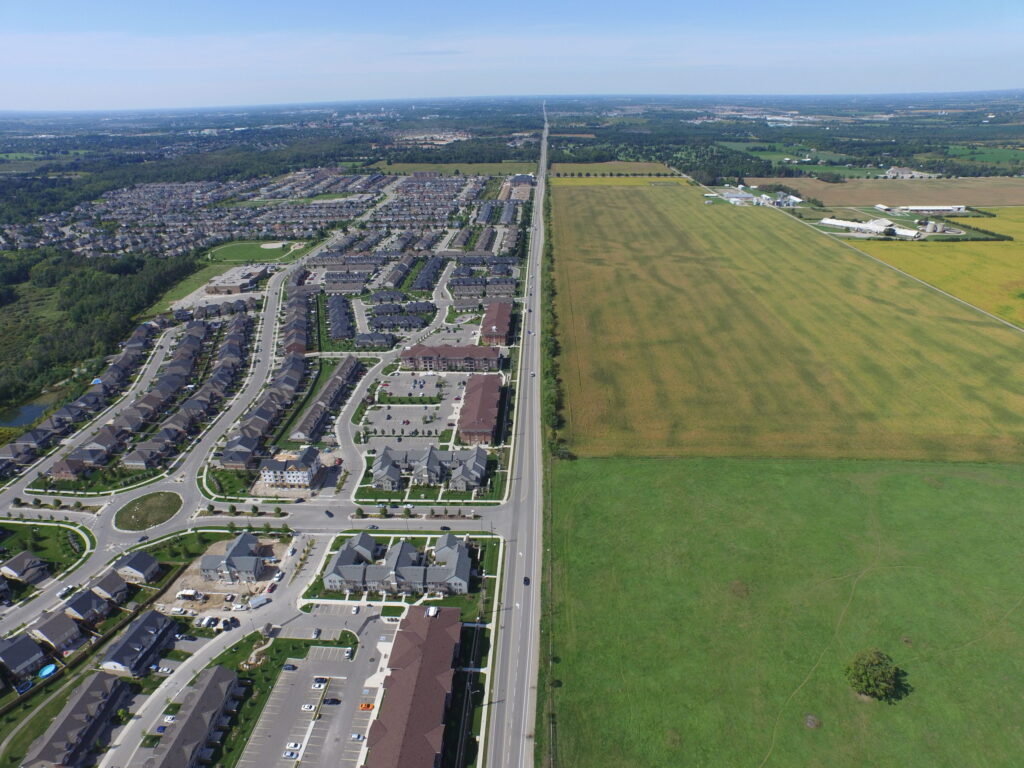Brampton, Ontario, is a particularly striking example of the demographic changes brought about by large-scale immigration to Canada in the past several decades. Once a quiet town with a strong English heritage (hence its name), it is now a bustling city of 656,000 people – 52% of whom are South Asian. Brampton’s major ethnic shifts have coincided with major religious shifts: the city is now home to the single largest number of Sikhs in Canada.
Brampton’s motto is “Flower City” , which is curious when considering its present economy and demographics. It made much more sense in the time of its founding when it had a significant flower nursery which featured prominently in the town’s identity. The nursery was established by Edward Dale in 1863, a settler from England, and developed into a global flower exporter.
Since the flower nursery was demolished in 1977, the city’s largest export is no longer flowers, but Sikh culture. April was proclaimed as Sikh Heritage Month by the Ontario Legislative Assembly in 2013 – the first of its kind in the world. It is primarily financially supported by the City of Brampton and the Peel Art Gallery Museum and Archives, which is headquartered in Brampton. The primary goal of this month is the promotion and celebration of Sikh culture, arts, and heritage.
You can understand my surprise, then, when Premier Danielle Smith of Alberta posted a tweet acknowledging the conclusion of Sikh Heritage Month on May 1st:
“When the first Sikhs settled in Alberta in the early 1900s, they worked as miners, farmers, and lumber workers. They quite literally built the foundations of our province.
For more than a century, Sikhs have enriched Alberta, helping create a province that is strong, welcoming, and prosperous.
I was honoured to have joined with my friends and the Minister of Immigration and Multiculturalism, Muhammad Yaseen, in Calgary to celebrate the conclusion of Sikh Heritage Month.”
I and many others online were bemused that Alberta’s premier was not only celebrating the culture being promoted by a city in another province, but also making the bewildering claim that Sikhs “quite literally built the foundations of our province”. This is factually untrue, and frankly undermines the legacy and sacrifice made by the actual settlers of Alberta, who suffered and died to tame the Wild Rose prairies.
It is likely that Danielle Smith was referencing the story of Harnam Singh Hari, the first Sikh settler to successfully farm in Alberta in 1910, who had a park named after him in 2014 – one year after the Ontario Legislature established Sikh Heritage Month.
Putting aside this one case, let’s take a look at some concrete facts about the history of Sikh settlement in Alberta. A detailed population table available on Wikipedia shows the geographical distribution of Sikhs throughout Canadian history.
In 1911, the time period during which Smith claims Sikhs were building the foundations of Alberta, there were a grand total of 23 Sikhs in the province – or 0.01% of the population. By 1931, this number soared to 27 – and then declined to 17 in 1944. By the 1980s, we start to see real gains in the population, with the number of Sikhs climbing to 16,645 in 1981. Nevertheless, this number still only constituted 0.2% of Alberta’s population.

As recently as 2001, there were only 23,470 Sikhs in Alberta. In that year, Alberta’s population was 2,941,150. This means that, only 23 years ago, Sikhs still made up 0.8% of the population. To put that in perspective, the number of atheists in Alberta in 2001 was just shy of 30 times that number.
What Smith failed to mention was the wide array of settlers who came to Alberta and were the people actually behind the contributions that she accredited to Sikhs. She says that Sikhs in Alberta built the foundations of the province through their involvement in the mining industry. In the interest of historical accuracy, I would like to point out the crucial contribution of Sir Alexander Galt, a Father of Confederation, who founded the North Western Coal and Navigation Company that put to use the coal buried deep beneath our province’s soil. He was one of the primary forces behind the foundation of Alberta’s third largest city, Lethbridge, which was surrounded by mining towns that were inhabited primarily by European pioneers. We can also look to Nicholas Sheran, who sought the guidance of local natives to establish the very first mining shaft in Lethbridge.
Premier Smith says that the Sikhs in early 20th century Alberta contributed greatly to the province’s farms. Since this group constituted just 0.01% of the population in that era, this praise is greatly overstated. If we are describing the founding Alberta’s agricultural sector, it would be more accurate to point to people like the Barr Colonists. With the help of their native neighbours, these British colonists were able to fertilize the ground in the frigid cold of eastern Alberta while living in tents. Against all odds, this colony grew into the city of Lloydminster. It wasn’t until after those tents had been painstakingly replaced by roads and cities, constructed bit by bit while facing down every hurdle, that Sikh immigrants came in large numbers to inhabit an already tamed land.
There is a clear demographic of people who “quite literally built the foundations of our province”. European settlers were the ones who suffered black lung in the mines and survived harsh winters living in tents on the border with Saskatchewan. They consulted the native peoples to determine the best home they could build for themselves among the prairies and the wilderness.
Premier Smith’s obfuscation of Alberta’s history does a great disservice to the early settlers and the native peoples of the numbered treaties who played real and tangible roles in the founding of the province. Clearly, all that matters to Smith is that she gets votes by pandering to the growing immigrant diasporas in Alberta’s big cities, even if this means contradicting historical facts.
All content on this website is copyrighted, and cannot be republished or reproduced without permission.
Share this article!





Nice work Edmund! Thank you for the lesson on Alberta history. Sadly, this mis-leading example provided by the Alberta Premier along with other immigrant multicultural traditional observations adds to the dilution of our true Canadian Heritage leaving us with an intentional post nation state as planned by Prime Minister Justin Trudeau.